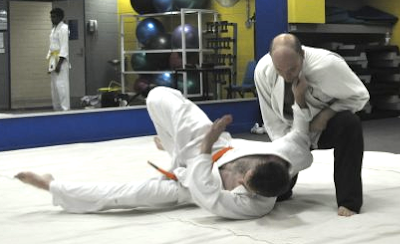In our classes, prior to the closing ceremony, it customary for the instructor to ask, "Are there any questions?". Usually these are answered with briefly, then any announcements are made, and the we pack up, get changed into civvies, and go straight home*.
This format is fine for covering Q&A about administrative matters, but not ideal for consolidating learning. While I have been toying with extending the time available to allow greater reflection and sharing about technical matters, I am coming round to thinking that keeping it brief is fine, and other approaches may work better anyway for enhancing reflection and learning.
One approach that appeals is used by one of our Shihans. After giving the class a new or challenging exercise to work on, he'll often get the group to debrief by having the class form a circle around him and each in turn describe something they just learned or observed. This encourages reflection, and also gives everyone the benefit of picking up on the perspectives and observations of others. The instructor is also at liberty to respond briefly to some of the observations, but it's not compulsory. I think I'll trial this method for a while in my class.
Another good way to help consolidate one's own learning is to make notes after each class. And review them later.
*Or hang round and chat, but that makes for a late night.
The Science Behind All Fighting Techniques
4 weeks ago






